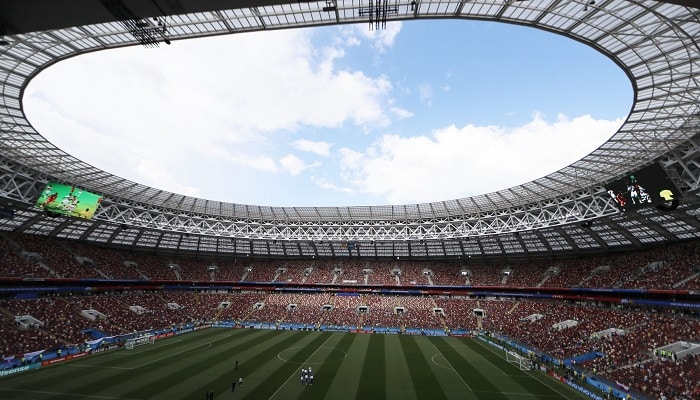The FIFA squad for the 2026 World Cup will be the first to feature 48 teams, thus increasing the number of participants compared to previous editions. The application process is also being revamped and, for the first time in history, countries from North, Central and South America will be able to apply to host the competition.
To apply, a country needs:
– A national football federation recognized by FIFA;
– A stadium with capacity for at least 40,000 people;
– At least five stadiums with capacity for 40,000 people, if the country is a candidate to organize the Women's World Cup.
What is the World Cup?
The World Cup is the biggest international men's football tournament in the world, organized by the six main football confederations. It is held every four years, with 32 participating teams, divided into 8 groups of 4. The final is played by two teams, the winner being the world champion.
The 2018 World Cup was the 21st edition of the tournament, held in Russia. The next one will be in 2022, in Qatar.
The different countries that hosted the World Cup
The FIFA selection is held every four years, and since 1930, the men's football World Cup has been the most prestigious world cup on the planet.
The responsibility of hosting this event is great, as in addition to a stadium with capacity for at least 60,000 people, the country needs to have good hotel and transport infrastructure, as well as security for all visitors.
Since the first edition of the competition, in 1930, only eight different countries have hosted the World Cup. They are: Brazil (1930, 1950, 2014), Italy (1934, 1938), Switzerland (1950), Germany (1974), Argentina (1978), Mexico (1986), United States (1994) and South Korea/Japan (2002).
Brazil and Germany are the only countries that have been champions twice in a row. Brazil is also the only country to have hosted the competition three times. Russia was the last to host, in 2018 and Quattar will be next.
Pros and cons of a country hosting the World Cup
The World Cup is considered the biggest sporting event in the world, and hosting this competition involves many factors. Countries wishing to apply to host the World Cup must meet certain criteria established by FIFA, such as having stadiums with a capacity of at least 60,000 people, in addition to hotels and other necessary infrastructure to house players, coaches and journalists who come from Worldwide.
In addition, countries need to have a well-defined financial plan, as hosting a World Cup is expensive. Brazil, for example, spent more than US$ 11 billion for its preparations for the 2014 World Cup – an amount that surpassed initial estimates by almost 50%.
Despite the costs involved, there are many countries that want to host the World Cup. This is due to the benefits that an event of this magnitude can bring to a country, such as increased tourism, international visibility and investments in infrastructure.
However, hosting a World Cup can also bring some challenges. Host countries have to deal with the pressure of organizing a perfect event, in addition to facing financial and logistical problems. There is still a risk of protests and violence during the competition, as occurred in Brazil in 2014.
Overall, hosting a World Cup is an expensive and complicated undertaking, but one that can bring many benefits to a country – it just needs to be prepared to face the challenges.
What are the requirements for a country to host the World Cup?
The requirements for a country to host the World Cup are quite demanding, and include an adequate infrastructure of stadiums, hotels, access roads and transport. In addition, the country needs to present a security plan to ensure the safety of visitors and athletes throughout the event.
How the choice to host the world cup is made
To host a world cup, a country needs to go through a rigorous selection process. The FIFA Executive Committee analyzes all applications and chooses the best options.
The most important criterion is the country's potential to host a successful event, taking into account factors such as sports infrastructure, logistics and capacity to host visitors. Other criteria are also considered, such as the country's political and social situation and its history with football.
The host of the world cup is chosen approximately 8 years before the event, so that the selected country has enough time to prepare.
The choice is made through a draw, after the selection of candidates.
The process starts with a list of possible venues, which is reduced to a more manageable number. The FIFA Executive Committee then analyzes all applications and chooses the best options. Finally, the seat is chosen through a lottery.
After all, did you like to know more about? Tell us here in the comments and
don't forget to share with your friends and family.
Want to know more about it? Enter our blog and find more
information!


